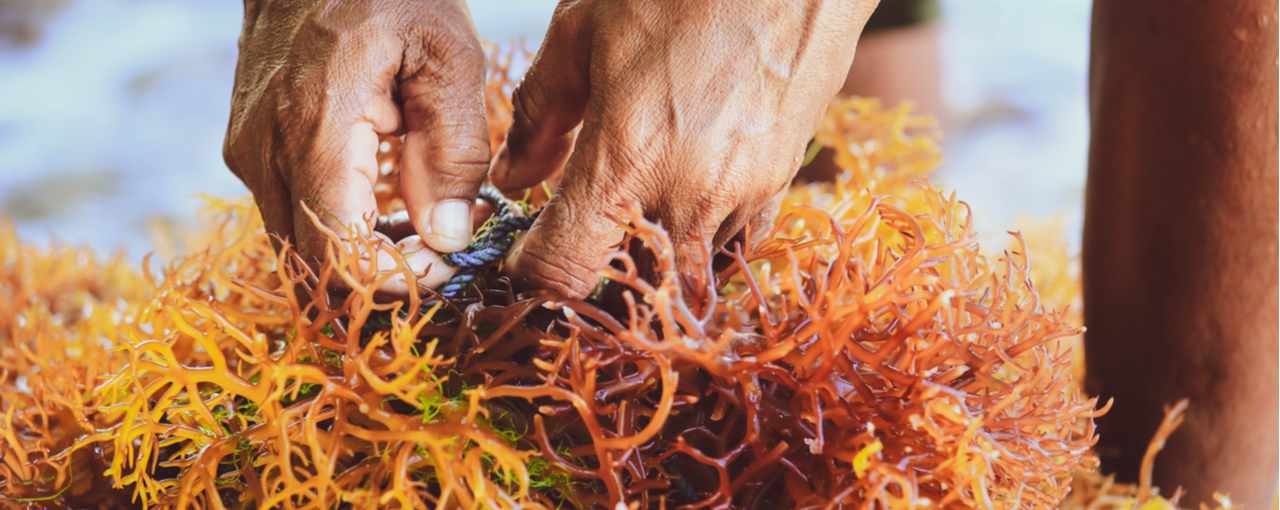Carrageenan
Extraction from red seaweed
With a long history of safe use and broad global regulatory approvals for its use in foods and beverages, carrageenan is a unique and highly versatile food ingredient. Carrageenan, which is derived from red seaweed, has been consumed for centuries and used in foods for over 600 years. Carrageenan offers numerous technological functions in foods and beverages and is commonly used to bind protein, promote gel formation, thicken, stabilize, and replace fat. Carrageenan is used in conventional food, permitted in processed foods marketed as organic, and suitable in foods marked halal, kosher and vegan.
Cargill offers one of the widest ranges of commercially available carrageenan, employing proven production processes and using a large variety of different types of red seaweeds such as Gigartina, Chondrus, Iridaceae, and Eucheuma.
To ensure sustainable sourcing of our offer Cargill has established the Red Seaweed Promise. Further information on the program can be found here.
With Cargill’s clean label offering and the plant fully compliant to pharmaceutical requirement (Highest level of quality standards) Also add Cargill’s formulation expertise, this enables the formulation of commercial carrageenan products tailored to very specific needs in different application.
Applications
More information
Safe Ingredient For Use In Food
Despite its long safety record, some have alleged that food-grade carrageenan causes harm to human health and called on food companies and retailers to replace carrageenan or not market products containing this important ingredient. Most misunderstandings about the safety of carrageenan are a result of misinterpreted research or a mischaracterization of the ingredient. Further, some researchers have used quantities that greatly overestimate the amount a person would ever consume, administered carrageenan to test subjects in ways that are not representative of how humans consume it in food, or used degraded carrageenan which his not allowed in food. Scientific and regulatory authorities from around the world have reviewed the available scientific literature and safety data and have determined that carrageenan is safe for use in food. In July 2014, the Joint Expert Committee on Food Additives (JECFA)—an international expert scientific committee administered jointly by the Food and Agriculture Organization of the United Nations (FAO) and the World Health Organization (WHO)—determined carrageenan is safe for use in all populations, including very young infants.
In its April 2018 Scientific Opinion, the European Food Safety Authority’s (EFSA) Panel on Food Additives and Nutrient Sources added to Food (ANS Panel) noted no safety concerns regarding carrageenan and processed Eucheuma seaweed (PES).
Regulatory Status
Carrageenan (E 407) is listed in Annex II of Regulation (EC) No 1333/2008 of the European Parliament and of the Council of 16 December 2008 on food additives. Where for particular food categories a limited dosage may apply mostly “quantum satis” applies in many food categories.
Manufacture
Our refined carrageenans are manufactured in modern plants utilizing the latest extraction, concentration, separation and drying technologies, following 2 main processes: Alcohol and KCI.
Production site
Our Carrageenans have been manufactured in our production plants in Baupte (Normandy, France) since 1956.

Cargill's Red Seaweed Promise™
Cargill's Red Seaweed Promise™ - leading the industry towards a thriving red seaweed sector for generations to come.
Some Cargill products are only approved for use in certain geographies, end uses, and/or at certain usage levels. It is the customer's responsibility to determine, for a particular geography, that (i) the Cargill product, its use and usage levels, (ii) the customer's product and its use, and (iii) any claims made about the customer's product, all comply with applicable laws and regulations.

